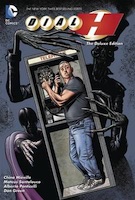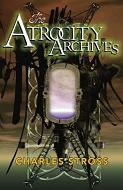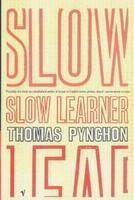 As a child, did you ever imagine having unusual and ever weirder superpowers just because they would come handy in your current situation, to resolve the quandary you got yourself in, so much better than what a Superman or the like could provide? Or were you an avid reader of the ever-proliferating (or so it seemed to me) superhero comics and stories and worlds, with ever more heroes and villains, with ever more contrived abilities and looks in a desperate attempt to somehow keep the never-ending churn of stories fresh? Or did you only trip over this on social media, with yet another share of ‘The 25 most useless superpowers’ or the like?
As a child, did you ever imagine having unusual and ever weirder superpowers just because they would come handy in your current situation, to resolve the quandary you got yourself in, so much better than what a Superman or the like could provide? Or were you an avid reader of the ever-proliferating (or so it seemed to me) superhero comics and stories and worlds, with ever more heroes and villains, with ever more contrived abilities and looks in a desperate attempt to somehow keep the never-ending churn of stories fresh? Or did you only trip over this on social media, with yet another share of ‘The 25 most useless superpowers’ or the like?
Either way, this is, I guess, where DC’s ‘Dial H for Hero’ started from - the ability to dial a one-shot superhero with one, maybe two specific powers from a phone dial. At least you didn’t have to keep them in the canon forever that way… But China Miéville, author of a substantial number of unusual, fascinating, and highly stylish books (Fantastic Fiction counts 11 novels, plus a number of collections and other formats) has had a fascination for these absurdist heroes for a long time, and has, as he explains, been talking to/at DC about exploring the universe behind the dial for a while:
“The DC people would smile politely. That would be that. Until, very suddenly, they said yes.”
And thus we now have this book, this graphic album, collecting 16 issues of Dial H plus one from Justice League. I’ve reviewed the Deluxe Edition, which comes as a Hardback with a fancy cover, an Afterword by China explaining some of the above in better (and more) words, Character Design sketches by Mateus Santolouco, and Interior Page pencils by Alberto Ponticelli. It’s a rather neat package, I felt.
I’m not going to spill much of the story of everyman Nelse, overweight, unfit, fresh from having a heart attack, who stumbles over one of these dials in a back-alley where his friend is being attacked by a gang, dials a hero, and saves him. But things never are that simple, of course, and behind every layer is another one waiting to be revealed and explored, until we reach the centre of the dial universe, so to speak. Nelse learns a lot along the way (and so do we!), about his world, about other worlds, but especially about himself.
One thing which was notable to me was that China really does not get attached to his protagonists. Yes, Nelse is the main one and is in nearly every story arc, but otherwise I would caution the reader not to get overly attached to most other characters - and I hated to see some of them go!
The way the story was told, with its mix of straight storytelling heading for a resolution, with blind side tracks, explanatory stories only topically connected, and some interesting loops stuck in greatly reminded me of Gaiman’s Sandman (which is a much larger oeuvre, of course).
But, of course, a large part of makes or breaks a comic is not the author penning the story (not even with a mystery/horror maestro like Miéville at the reins), but the artists setting it in scene. I do not know how much influence over the graphical parts China had, but they are complex, occasionally confusing and requiring multiple readings, and in large parts spectacular in bringing these huge and complicated topics to life.
There were multiple artists involved in this collection, each with their own individual style and take on how to show some of the quite complex events, but overall the draftsmanship is of a fairly detailed nature, with both faces and backgrounds getting a good amount of attention (especially the faces struck me as overdone in some cases, but that might just be me!), except when the backgrounds get blanked entirely to focus on a specific moment, a specific interaction between the protagonists.
Otherwise we get the expected amount of motion lines, and other dynamic indicators of all the action taking place (hey, it’s superheroes, there’s plenty of fighting and other action!). You clearly see the influence of film/CGI flowing back into comics, I find. The pages themselves are rarely laid out in a standard panel format - and whilst the extent the classic panels are being used varies greatly between graphic artists there definitely is no consistency from page to page even with those who tend more towards standard layouts. Non-standard and varying panel sizes are the norm, and many pages are either splash pages with inserts, or completely free form reminiscent of a collage approach. Breaking the border between panels is the default. Word and thought balloons as well as captions very greatly depending on who speaks/thinks (this is quite helpful, as there are frequently different streams going in parallel, in the same splach), with size, font, usage of case, and background colours all used to distinguish. Story flow is frequently going in non-standard directions across the panels (another element re-imported from cinematography), or even with multiple event going in different directions (now that’s much easier on the page than in film).
One thing this really brought home was that this needs to be read in full page, ie should you decide to read this electronically then you need the means to see the whole page, I think you would lose something if you could only see parts, and have to follow trails to explore.
I rather enjoyed this - it’s a bit different from ‘normal’ superhero fare, and graphically presented to a high standard. The story is quite complex, I had to go back and forth frequently to re-read and explore which hints I’d missed, and occasionally got confused about what was going on, or why.
This has depth, and bears re-reading, so the deluxe packages is a great investment if you are looking for something a little different.
More China Miéville
Title: Dial H
Author: China Miéville
Artist: Mateus Santolouco
Artist: Alberto Ponticelli
Artist: Dan Green
Reviewer: Markus
Reviewer URL: http://thierstein.net
Publisher: DC Comics
Publisher URL: http://www.dccomics.com
Publication Date: 2015
Review Date: 160822
ISBN:9781401255206
Price: USD 34.99
Pages: 368
Format: Hardback
Topic: Comics
Topic: Superheroes













